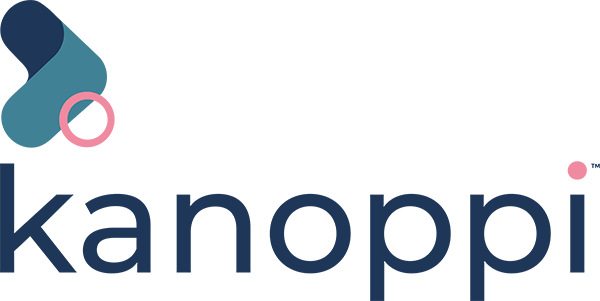
Summary
With new mandatory sustainability frameworks for financial institutions, corporate sustainability reporting is becoming more complex and challenging.
This article will summarise the requirements for each of the mandatory sustainability frameworks for financial institutions and an overview to help you manage them.
Corporate sustainability reporting is about to become far stricter and more complex over the coming years.
As more pressure is placed on financial institutions to become more transparent and proactive with their sustainability efforts, mandatory sustainability reporting is set to play a key role in attaining and proving compliance.
Read more about the many voluntary frameworks for financial institutions to consider.
Mandatory Frameworks for Financial Institutions
This article will cover everything you need to know about mandatory frameworks for financial institutions in 2024 and beyond.
Read on for a detailed breakdown of all the mandatory frameworks for financial institutions, what they mean, what you need to do to comply, how to report accurately, and how to make your carbon measurement and reduction easier.
1. Sustainable Finance Disclosure Regulation (SFDR)
The Sustainable Finance Disclosure Regulation (SFDR) requires ESG disclosure requirements for asset managers and other participants in financial markets.
The European Commission introduced the SFDR as part of a series of legislative measures from its Sustainable Finance Action Plan, along with the Taxonomy Regulation and the Low-Carbon Benchmarks Regulation.
Who does this affect?
All financial market participants and financial advisors operating within the EU must comply with the SFDR, including any with EU shareholders or those marketing themselves within the EU.
What is reported?
There are three segments for SFDR disclosure requirements:
- Disclosure of adverse impacts on sustainability factors from investment decisions. Firms must disclose the potential adverse effects of investment decisions on sustainability factors and detail their efforts to mitigate this.
- Integration of Sustainability (ESG) Risk into Investment Processes. Firms must disclose instances where ESG events could negatively affect significant investments and align remuneration policies with the management of sustainability risks.
- Provision of Sustainability Information for Financial Products. As defined by the SFDR, additional disclosures are required for financial products categorised as Article 8 or Article 9 products.
What are the benefits?
The benefits of the SFDR include:
- Preventing the exaggeration of environmentally friendly claims to reduce greenwashing attempts
- Prioritising ESG risks in investment processes
- Filling gaps in mandatory rules for ESG disclosure
- Inciting a behavioural shift in financial market participants
- Safeguarding investor value by promoting increased investment in ESG disclosure
- Legitimising green credentials to enhance transparency and trust
- Protecting revenues and asset values from potential future disruption
- Aligning with wider cultural shifts towards sustainability and ESG support.
2. Taskforce on Nature-Related Financial Disclosures (TNFD) for Financial Institutions
The TNFD is a global science-based initiative that develops and delivers risk management and disclosure frameworks to help organisations report and address evolving nature-related issues.
The TNFD has released a draft form of sector-specific guidance and recommendations for financial institutions, metrics architecture, and additional sources and references on nature-related issues for financial institutions.
Who does this affect?
This affects banks, insurance companies, asset managers and owners, development finance institutions, and institutions offering portfolio management services.
What’s reported?
The task force has presented an adaptation of the TNFD disclosure metrics architecture for financial institutions:
- A metric to represent the financial exposure to a defined set of sectors that are considered to have material nature-related dependencies and impacts
- A metric to represent the financial exposure to companies with activities in sensitive locations
- Additional metrics aligned with nature change, as relevant to the financial institutions.
What are the benefits?
Complying with the TNFD can help organisations enhance and protect their brand reputation, attract more capital, and track and benchmark progress. The framework will also help financial institutions to identify nature-related risks and opportunities.
Sustainability reporting guides
This guide to mandatory sustainability reporting frameworks for financial institutions is part of a wider series where we’ve detailed all the voluntary and mandatory reporting requirements for sustainability and carbon reduction across various sectors.
You can find more guidance in the other articles in this series here:
- Mandatory sustainability frameworks
- Mandatory sustainability frameworks for financial institutions
- Mandatory energy and emissions sustainability frameworks
- Voluntary sustainability frameworks
- Voluntary energy and emissions sustainability frameworks
- Voluntary sustainability frameworks for financial institutions
Keep up-to-date
With voluntary sustainability frameworks and reporting requirements
A great deal of the corporate sustainability reporting requirements affecting your business will require you to regularly keep up-to-date with the ever-evolving regulations.
To help make this as easy as possible for you, our monthly newsletter will include all the important updates and changes you need to know about to help you stay ahead of changes to the corporate sustainability reporting requirements.
Subscribe to receive our helpful monthly updates and news delivered directly to your inbox.
Why not start measuring your website’s carbon footprint?
Before you improve your website’s performance, start by measuring the carbon footprint – then you can report on the carbon footprint savings as you speed up your site.
Use our Kanoppi carbon footprint plugin. This intuitive tool provides measurements and insights about your WordPress website’s carbon footprint and helpful recommendations for reducing it.
Stay in the know
Sign up for our mailing list – we’ll share industry insights, product updates and company news.
"*" indicates required fields


